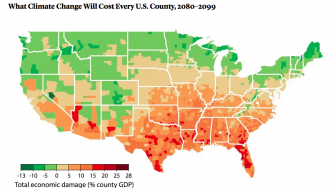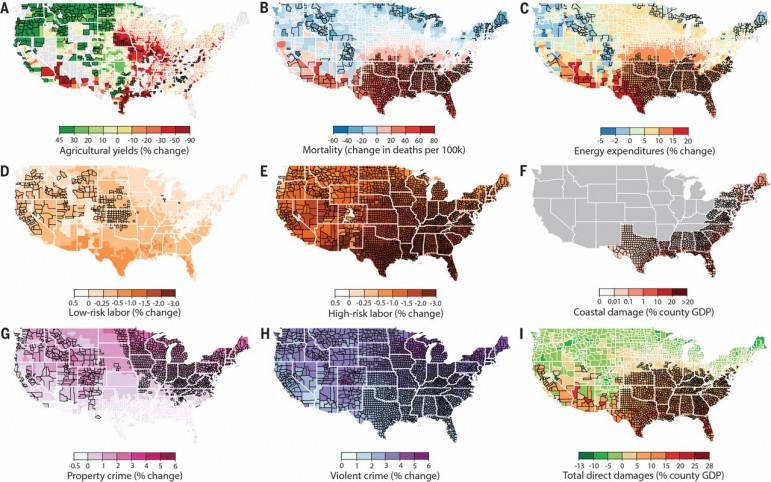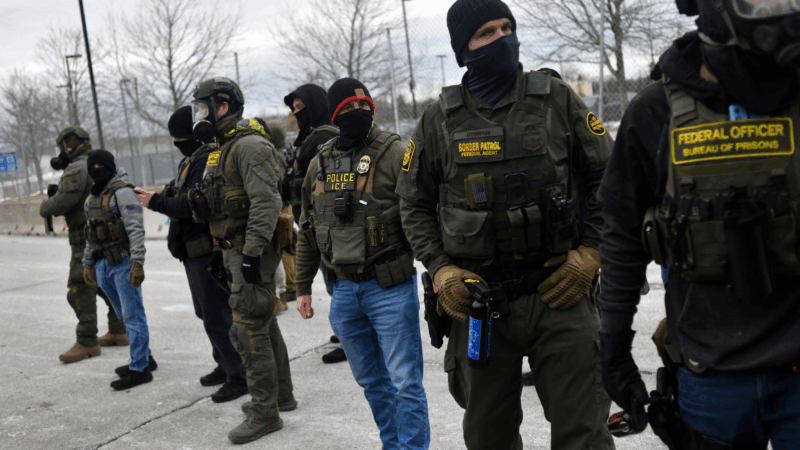Climate Change Analysis Predicts Losses for South
Scientists and economists have put together a detailed new analysis of potential economic damage from climate change in the United States. The study, published in the journal “Science,” uses decades of data to make predictions down to the county level. One takeaway: Alabama and the rest of the South could suffer more than other parts of the country. Higher energy bills, crop failures, and heat strokes are just some of the factors that will hurt economies across the South, according to the study.
The University of California at Berkeley’s James Rising, who co-authored the report, says, “Alabama stands to lose about three times the national average in its income, and that’s mostly driven by big increases in death rates.”
That can include mortality from heatwaves and associated diseases and accidents. The study predicts climate-change-related deaths in Alabama will roughly double those from car accidents by the end of the century. It also forecasts that the wealth gap between North and South will widen.
“What we find is that climate change is going to exacerbate inequality,” says Rising, “both because the South is already hotter and poorer, and because the North is actually going to, in some areas, get benefits from milder winters.”
But in Alabama, addressing climate change is not a political priority.
John Christy, Alabama’s State Climatologist, explains to companies thinking about moving to Alabama how the local climate can work to their advantage. And he says the study is just wrong.
“Climate models just aren’t reliable in terms of telling us about what’s going on now and what’s going on in the future,” he says. “The evidence for a disastrously changing climate is pretty thin.”
One thing Christy and the study authors agree on is the need to be prepared for hot and extreme weather. James Rising says there are many ways to do that. “Cities can paint the tops of their buildings white. They can plant more green spaces, make sure that they have plenty of water and air conditioning. And farmers can make sure that they invest in irrigation,” he says.
Rising says the new study is meant to help businesses, government, and other institutions better assess climate risks and make “more rational policies … We’re not trying to describe some kind of catastrophe that’s going to at some point just ‘click on.’ Climate change is going to become progressively more and more damaging and going to impact more more people, and having in hand the kind of kind of understanding that lets you choose as a society how much you’re willing to lose can really help make for better policy making.”

U.S. military troops on standby for possible deployment to Minnesota
The move comes after President Trump again threatened to invoke the Insurrection Act to control ongoing protests over the immigration enforcement surge in Minneapolis.
Martin Luther King Jr. had a dream … about health care
A doctor from Nigeria tells what Martin Luther King Jr. taught him about health, Justice and inequality.
Sunday Puzzle: It takes two
Ilyse Levine-Kanji of Westborough, Massachusetts plays the puzzle with Weekend Edition Puzzlemaster Will Shortz and host Ayesha Rascoe.
Venezuela: Maduro’s enforcer Cabello still central to power
The ousting of Venezuela's president raised hopes of change — but the politician now controlling the streets shows how little has really shifted.
Amid ICE clashes, New Hampshire bishop urges clergy to prepare their wills
The Episcopal bishop of New Hampshire told priests protesting ICE to get their wills and affairs in order. Some praise the bishop, while other priests say they never signed up to be martyrs.
New York Giants hire John Harbaugh as coach after identifying him as their top choice
Harbaugh joins the Giants 11 days after he was fired by the Baltimore Ravens. The Super Bowl champion is now tasked with turning around a beleaguered franchise.







